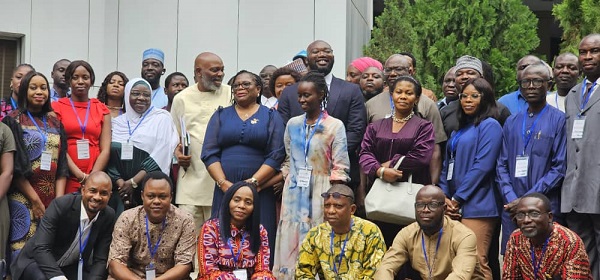
In response to the significant challenge posed by climate change to communities across Nigeria, the Federal Government has joined forces with relevant stakeholders to devise strategies and initiatives aimed at addressing climate change issues within the nation.
During a one-day workshop on Climate Change Adaptation in Nigeria held in Abuja, the permanent secretary of the Federal Ministry of Environment, Dr. Ibrahim Idris Yusufu FCA highlighted the collaborative efforts of the Nigerian government and various stakeholders to mitigate climate change challenges. He emphasised the development of mitigation plans and frameworks to comprehend the intricacies of climate adaptation within Nigeria, with a particular focus on locally-led adaptation.
“In the past year, we have extensively reviewed key policy documents to evaluate the effectiveness of local communities in implementing LLA,” Yusufu stated. He further highlighted stakeholders’ engagement meetings that included representatives from national and state agencies, international organisations, civil society groups, academia, youth and local climate actors. The aim of these meetings was to identify the drivers, gaps, barriers and opportunities in adaptation initiatives across Nigeria, aligning them with the nation’s Nationally Determined Contributions (NDCs) and other international policies and frameworks.
Yusufu encouraged all participants to collaborate with the government in advocating for the inherent values and significance of the locally-led adaptation approach. He emphasised its role in advancing broader climate action and contributing to the socioeconomic development and well-being of local communities.
In her keynote address, the director of the climate change department, Dr. Iniobong Abiola-Awe underscored the global concern surrounding climate change and its multifaceted impacts on both human and ecological systems. She pointed out that Nigeria and other African nations account for a minimal share of global greenhouse gas emissions while still facing systemic risks and frequent communal conflicts triggered by the climate crisis.
Iniobong also highlighted vulnerabilities arising from lack of climate financing for sustainable adaptation initiatives, inadequate basic amenities and infrastructure, and socioeconomic inequalities. She noted that Nigeria’s complex agro-ecological zones, growing urban and rural populations, extensive coastline susceptible to sea level rise and storm surges, and underlying economic challenges contribute to the nation’s vulnerability to climate change. This vulnerability, she explained, has led to the emergence of infectious diseases and loss of aquatic and terrestrial biota.
Addressing the policy concept, the head of climate change programme at APRI, Dr. Grace Mbungu presented a concept note that delved into locally-led adaptation practices in Nigeria. The research, she explained, examined case studies from communities within the nation’s priority areas: agriculture, clean renewable energy and environment/land use.
“The research approach and methodology encompassed mapping Nigeria’s climate policy landscape, implementation strategies, practices, and actions at both local and national levels,” Dr. Grace outlined. “It involved policy landscape mapping and in-depth exploration of adaptation strategies, initiatives, and practices at the grassroots level.”
Mbungu highlighted the findings, revealing that community members devised traditional methods to combat soil erosion and landslides, such as planting erosion-resistant trees, using sandbags at erosion-prone sites, and creating raised ridges around vegetable beds. These actions have significantly reduced soil erosion, prevented potential disasters and protected property.
Additionally, Mbungu listed the government’s ongoing plans and frameworks designed to tackle climate change adaptation challenges. These include the Nationally Determined Contributions (NDCs), the National Adaptation Plan Framework (NAPF), the National Strategy and Plan of Action on Climate Change in Nigeria (NASPA-CCN), among others.

